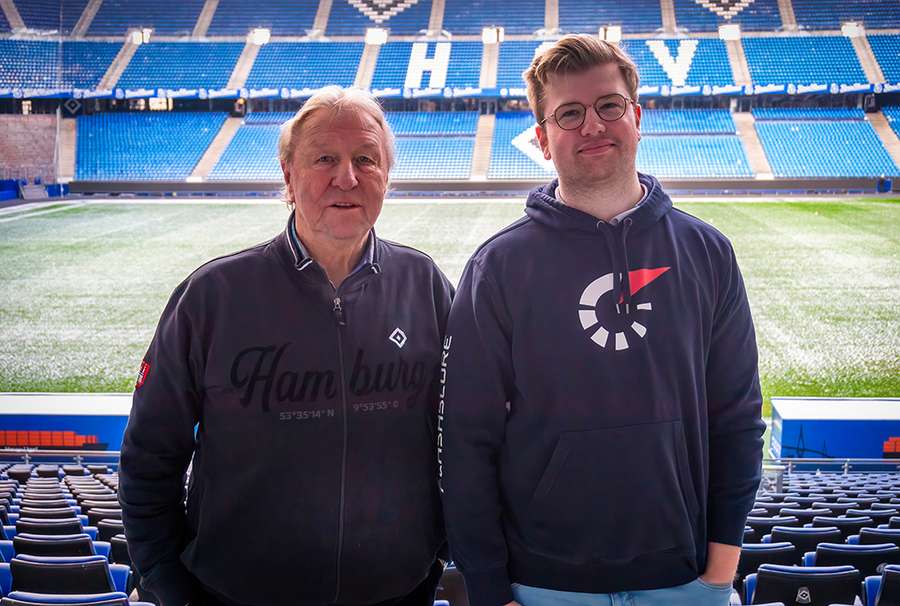EXCLUSIVE: Hamburger SV legend Horst Hrubesch on his career as a player and youth coach
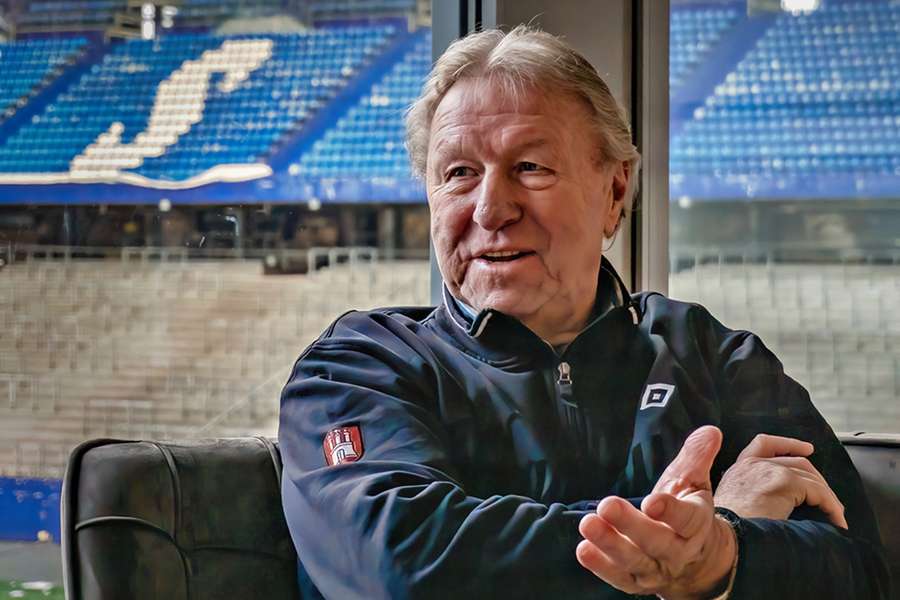
Horst Hrubesch enters the room for the interview with Flashscore with a friendly smile and a typical directness: "So, what do you want from me?" Even today, he doesn't mince his words and speaks as he has always. Honesty is what characterises him and has brought him to where he is today.
The story of the multiple German champion at Hamburger SV began in 1978 when he found his way from Rot-Weiss Essen to the northern city. His entry into professional football was only paved at the age of 24 by the brother of coaching legend Werner Lorant. He was Hrubesch's team-mate at SC Westtünnen and told the trained roofer: "You can do what they can do at Essen." The former Bundesliga club's coach at the time, Didi Ferner, also wanted the burly striker but moved shortly after he started training there.
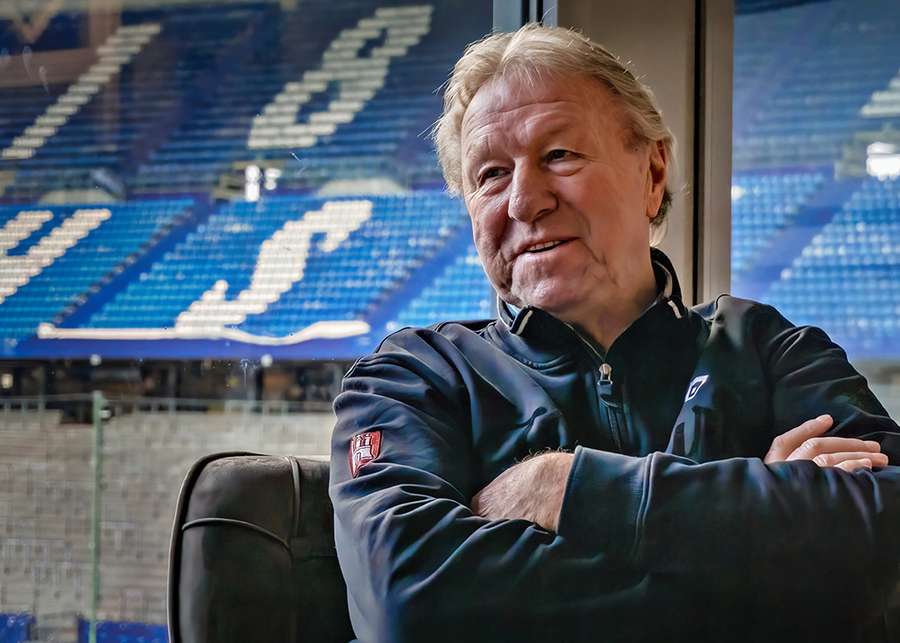
Ferner asked Hrubesch if he "wanted to come with him from Essen to Wuppertal." But 'Hotte' had already played in front of the impressive Essen crowd.
"I already knew Essen and wanted to stay here, with Willi Lippens, Werner Lorant, Günther Neuss and everyone else, we had a very good team there," Hrubesch recalled of his early days in the German top flight.
"The year I arrived, we finished 7th and I scored 18 goals straight away."
Hrubesch thanked God he went to Hamburg
By the time his second year with the cult club from North Rhine-Westphalia took him to the 2. Bundesliga, Hrubesch had already scored 21 goals and had an offer from Hamburger SV.
The driving force behind this was his good friend and former team-mate Gerd Wieczorkowski, who told him: "Langer, if you move, then come to Hamburg."
But the striker was a man with his own principles and wanted to give something back to the club that gave him the chance to play professional football, so he decided to stay. "They helped me, so now I'll help them get back up," was his train of thought at the time, according to Hrubesch. Although he set a record in the second division that is still unrivalled today with 41 goals, Essen ultimately failed in the relegation playoff.
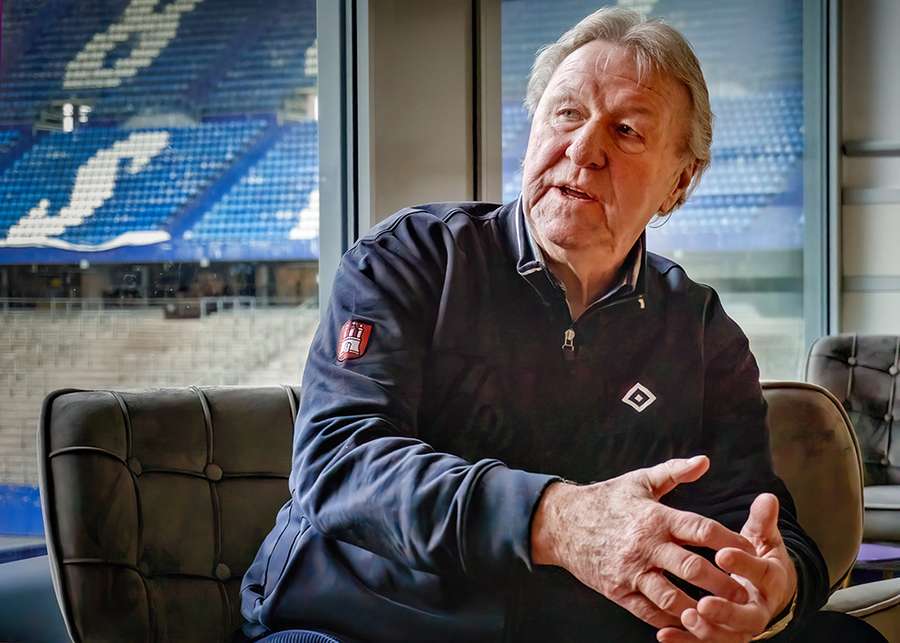
However, the top player wanted to play in the relegation playoffs before making a move. Eintracht Frankfurt were already in talks about a transfer at the time, but Hrubesch had one condition.
"I'll play the relegation playoff with Essen first and then you can announce the transfer," he said at the time of signing. It was an agreement that the Hessians immediately reneged on, as Hrubesch heard his transfer being announced over the radio in the car.
This cancelled out everything he had signed. "Anyone who knows me knows that the train had left the station for me at that moment," he commented on this digression into the past. In retrospect, he "discussed and arranged everything with Günther Netzer", which meant that he "thankfully went to Hamburg."
Here, too, he still thanks his friend 'Witsche' today, as he told Flashscore: "I hope he's watching from above - you were right."
An instant fit
For Hrubesch, having an "honest environment" was a top priority when he made the switch in 1978 because that was exactly what he was used to from his time at Essen.
At HSV, it was "a perfect fit right from the start." This was the beginning of a personal success story in the heart of the north. The team structure was like a family, they sat together after games, did a lot together and everyone stood up for everyone else. A philosophy that suited the then-new signing perfectly.
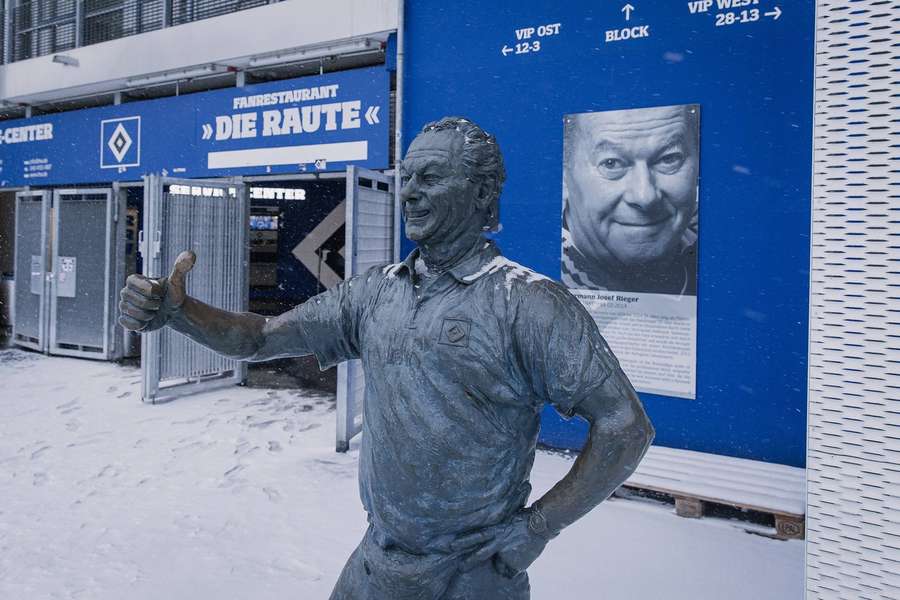
But Hrubesch wanted to emphasise one thing in particular during the interview: "What we had that no other club had was Hermann Rieger. He was the soul of the club, that has to be said quite clearly. It was a feel-good oasis for us players here, he did everything for us."
The cult masseur spent a total of 26 years at HSV, and after his death in 2014, he is still close to his favourite club as a bronze statue at the northeast entrance to the Volksparkstadion.
Even the recently deceased Franz Beckenbauer had "great respect for Hermann Rieger" and owed him a great deal. Even up until Rieger's death, former teammates, especially Felix Magath, looked after the club legend. Hrubesch cited this as a prime example of the team's solidarity: "We stood up for each other, that has to be said quite clearly."
Honest football and encouragement
Hrubesch thought back to those days at Hamburger SV with a smile: "The team was like a family, one supported the other and that's how we played football ."
Back then, "nothing was too much trouble." Extra shifts were also put in after training with Manfred Kaltz and Casper Memering because it was important for them "to simply know that they were getting better, that was the big incentive."
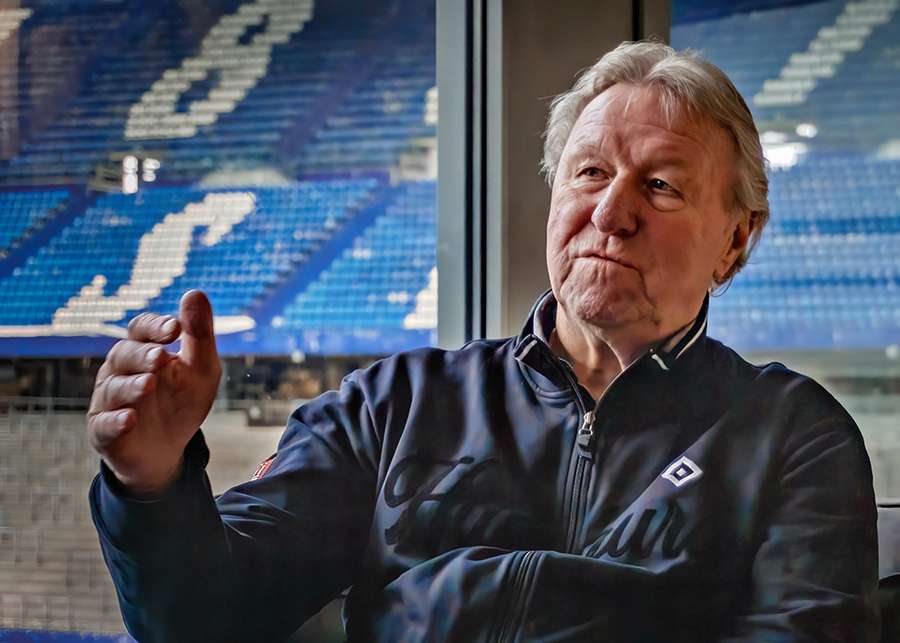
In the 1979/1980 and 1980/81 seasons, the Rothosen only finished second in the table, but the former striker appealed to the attitude that was in the minds of the team at the time, especially his own: "We said, we'll take it, you can be angry for three weeks when the season is over and then you start from scratch."
A view of things that is unrivalled today and was probably also a recipe for success for the top team at the time. The selective reinforcements in the management team also fitted like a glove: "Whether it was a Lars Bastrup, a Thomas von Heesen or someone else. They came here and were integrated by us."
According to Hrubesch, it was simply the youth that made HSV strong back then and motivated him to continue to give his best. They "just played football and had fun, just like when they were kids." In order to be successful in this sport, you had to "keep having fun", even if you had to "agonise over it."
The Austrian cult coach
When Ernst Happel moved to Hamburger SV in July 1981 and succeeded Branko Zebec as coach, Hrubesch felt as if "the sun had just risen. There was an aura" that made him "take a deep breath".
According to the so-called 'Header Beast', a different kind of football was played with him, recalling a friendly match in which his team was already leading 3:0, 4:0 and Happel continued to appeal to the team: "Gentlemen, the goal is over there, score goals."
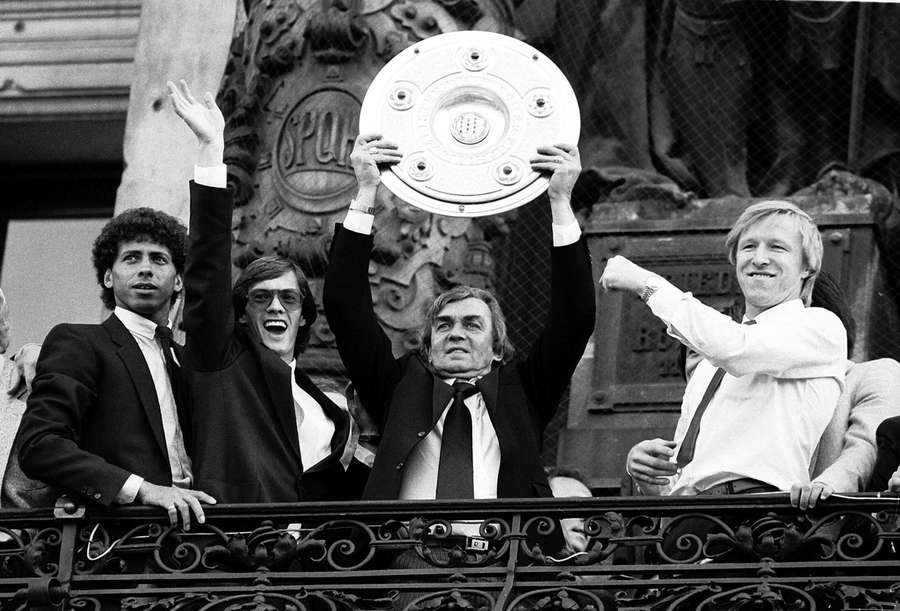
A philosophy that was tailor-made for the goalscorer, who scored 13, 21 and 17 goals for Hamburg in his first seasons. In Happel's debut season, he netted 27 times in 32 games, securing him the title of top scorer. He thus played a huge part in Hamburg's championship title, which they were able to bring back to the city for the first time since his debut in 1978/1979. With a goal record of 94:45, the Austrian coach's attacking football was also reflected in the final result; the team was almost at its peak.
However, in order to reach the footballing pinnacle at that time, the European Cup had to be won. Here too, Hrubesch responded to our interview with his usual composure and honesty, recalling the defeat in the 1980 final against Nottingham Forest. Back then, they were waiting at the airport and the striker saw the Nottingham team with "his" trophy. When that happened, he turned to his team and said: "We'll get it too."
One man, one word
And that's exactly what happened, because Hrubesch, who was now captain of the side, was always true to his word. When the team travelled to Athens for the final in the 1982/1983 season and a packed stadium wanted to fire up their opponents Juventus, his team "turned up at the stadium in tracksuits."
Once there, Hrubesch had already looked "where the way was", where he had to "pick up the trophy afterwards". Honest, direct but by no means arrogant, as he reflected again: "I couldn't afford to be arrogant anyway, I always had to work for it."
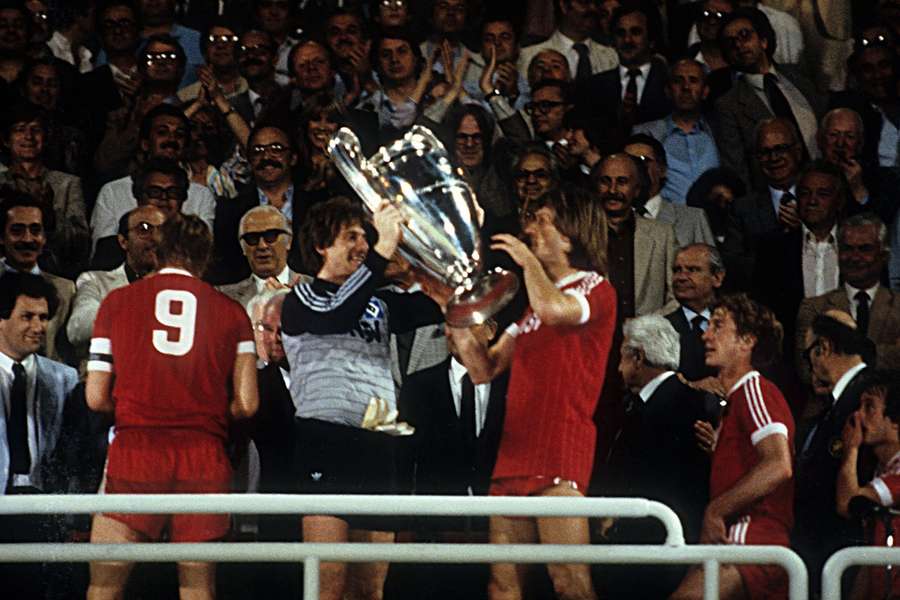
It was a final that once again showed the image of a united team that threw everything into the match. "There was nobody after the game who could have played extra time, we put everything into the 90 minutes and won it," said Hrubesch, full of humility about the performance at the time. Hamburg won 1-0 and secured the only trophy to date in the biggest club competition in European professional football.
But a little later it was to be the end of the player era at HSV, in the summer of 1983 he left for Liege, there were replacements in the north, but he was in no way angry with HSV: "At some point, you have to rejuvenate and everyone who heard at the time that (Dieter) Schatzschneider and (Wolfram) Wuttke were coming will have thought - great lineup. Whether they can bring that to the pitch is always a different matter."
Schatzschneider was a similar second-division phenomenon to Hrubesch back then and, at 25 years of age, much younger, but he was never a worthy replacement for the Header Beast.
A return to Hamburg
Hrubesch is a man who, at the age of 72, can still exude the youthful energy needed to get HSV back on track. He himself commented on this with a grin: "At the moment I'm 72 and in April I'll be 73, sometimes I have to shake myself at how old I am right now."
In July 2020, the long-serving coach of German national youth teams returned to the north to set the right course for the future of the northern club as head of the youth department.
In the interview, he also clarified an important attitude that he represented on the pitch back then and now passes on to his team as an official: "It's important to spread responsibility across several shoulders. People should make decisions, which also means making mistakes and allowing mistakes to happen."
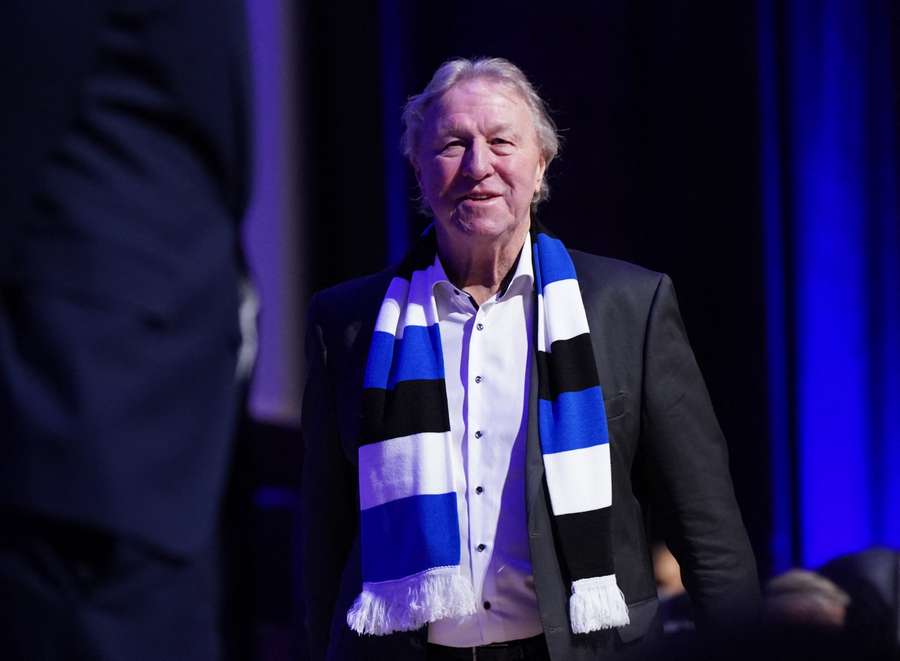
These are words that you hardly ever hear anymore in the fast-paced business of modern football, where everyone always wants things higher, faster, and further. A multiple German champion and top scorer who can bring everyone down to earth was a blessing for the second-division club, which would like to return to the top flight as quickly as possible.
He also communicates his tough and direct manner to the youngsters: "We know that they need an attitude, that they have talent. The crucial thing is that they are prepared to take responsibility, including responsibility for others. And that's what ultimately characterises a good team for me." This was precisely for this reason that he came back because Jonas Boldt and he were working on "the same track."
Then, as now, it was more important than ever to create a community - everyone would have been happy to have had an Uwe Seeler, Zebec, Happel or Netzer back then, but it was "always a we." Everyone at the club was "a simple person" who would always try to do their best in a "circle that treats you honestly."
'We are the HSV'
For Hrubesch, the human touch was always at the forefront, something that has remained to this day and has not diminished in his role as head of the youth department. He is straightforward and honest in his dealings with the talented players in the youth teams: "When talking to a player, I don't want the opinion of the advisor or anyone else, I'm interested in the opinion of the boy himself: You've been here for four years now, do you want to stay here or not?"
And if someone has already become European champion with the German U19 and U21 as a coach - teams in which later World Cup winners such as Kroos, Mesut Ozil or Sami Khedira played - he will be able to find the right path for today's youth.
At HSV, he takes the approach that they "can only do it together", because "nobody can do it alone ." Followed by his closing words, which summarise Hrubesch's career as a player and official at HSV to this day: "The credo I always follow is this - I'm not so important, we are important. I am not HSV, we are HSV."
